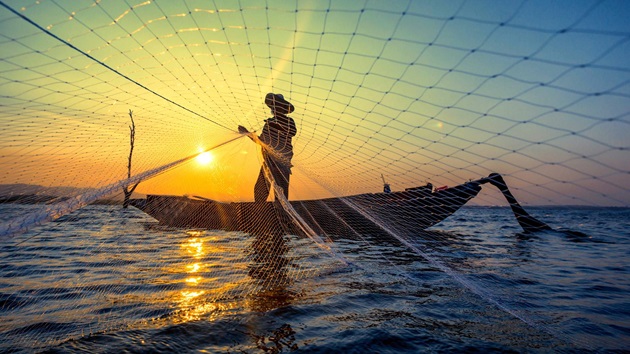A total of close to £1 million has been awarded via our fund this year, with around half the grants going to vital research and improvement projects.
On 17 July 2024, the latest raft of OSF recipients was announced. Scientific researchers from eight different countries are among those who will be furthering improvements in fisheries committed to sustainability. The researchers, in conjunction with ten associated fisheries, were granted almost £500,000 GBP for applications to either the Transition Assistance Fund or Student Research Grants.
In 2023-24, the MSC awarded 32 grants to support fisheries and innovative research projects, totalling nearly £1 million. Since 2018 the OSF has bestowed over 140 grants totalling approx. £5.25 million GBP to scientific researchers whose projects are designed to expand knowledge and close data gaps in sustainable fisheries science.
Helping fisheries improve
The 2023-24 funding round included thirteen projects associated with wild-capture fisheries in Mexico, Nicaragua, Suriname, Peru, South Africa, India, Indonesia and New Zealand. These fisheries are mainly all verified as part of the In-Transition to the MSC Program. By making improvements to their fishing practices, they aim to meet the MSC Fisheries Standard for environmental sustainability.
Nine of the projects received support from the Transition Assistance Fund. The research scientists who received these grants are focused on gaining more insight around the population dynamics of target stocks. Through the research, fisheries can be more
informed on the abundance of the stocks they harvest and ensure rules are in place to better manage catch limits and harvest at sustainable rates.
Student research
Additionally, there are four Student Research Grants in this year’s funding round. Issued mainly to early career researchers such as master’s degree students and PhD candidates, the projects aim to aid fisheries in minimising their impacts on biodiversity and the wider marine ecosystem.
A Student Research Grant project located in Baja California, Mexico looked at the populations and life cycles of brown pelicans that frequently interact with a sardine fishery. The data will give an accurate assessment of the pelican population size and understand any impacts the fishery may make on it. The funding for this project was donated to OSF by retailer Carrefour Italy and seafood brand Delicius as part of MSC Italy’s Sustainable Seafood Week, 2023.


